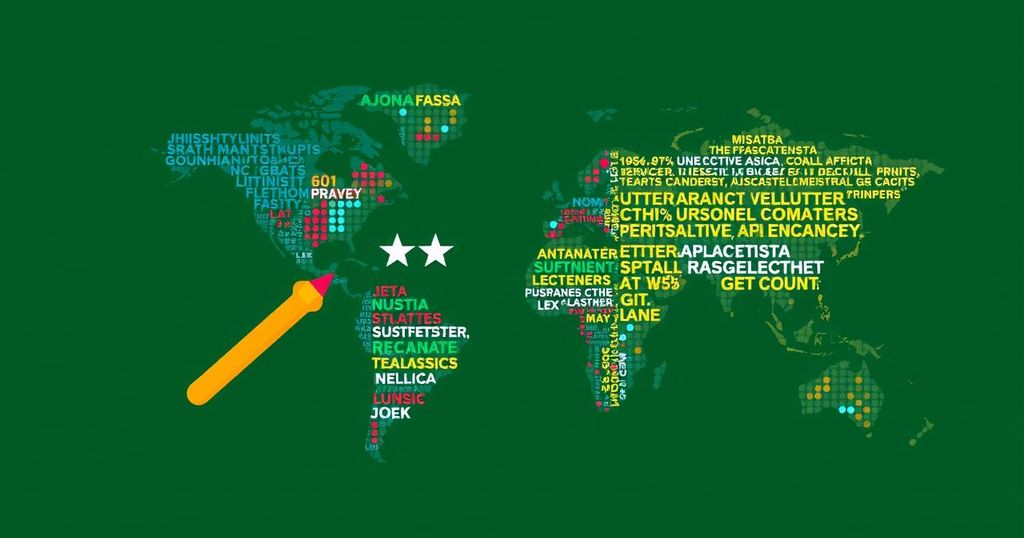The Economic Freedom Fighters of South Africa reacted to the U.S. elections by questioning the integrity of American democracy and claiming U.S. imperialism in the Democratic Republic of the Congo. Their assertions, linking U.S. actions to instability in Congo, are misleading, as the U.S. engages in trade and has legal measures to prevent exploitation of conflict resources. Evidence points to other nations, particularly Rwanda and Uganda, as primary instigators of illegal mining in the region.
Following the election of President-elect Donald Trump in the United States on November 5, reactions across Africa varied, with some, including the Economic Freedom Fighters (EFF) of South Africa, questioning the legitimacy of American democracy. The EFF, led by the highly polarizing Julius Malema, issued a statement asserting indifference to the election outcome while condemning U.S. politics as imperialistic and suggesting that the U.S. orchestrates instability in the Democratic Republic of Congo (DRC) for its resource benefits. This claim is rooted in a misleading historical narrative regarding the assassination of Congolese Prime Minister Patrice Lumumba and ongoing conflicts in the DRC involving numerous rebel groups competing for control over its vast mineral wealth. There exists substantial evidence countering the EFF’s assertions. The United States actively engages in trade with Congo, notably in copper and other resources. Furthermore, U.S. legislation, such as the Dodd-Frank Act, mandates rigorous supply chain checks to prevent the exploitation of illicitly mined minerals from conflict zones. The Congolese government itself has implicated Rwanda and Uganda as the main beneficiaries of illegal mining operations, rather than the U.S., which has consistently condemned violence in the DRC and imposed sanctions on militia groups involved in human rights abuses. The complexities of the DRC’s resource management and international dynamics indicate a narrative that contradicts the EFF’s claims, highlighting the importance of thorough understanding in addressing such issues.
The response to the U.S. election results by various political entities within Africa illustrates a broader sentiment regarding American foreign policy and its historical implications on the continent. The Economic Freedom Fighters, a far-left party in South Africa, emphasizes a populist approach under the leadership of Julius Malema, whose rhetoric often incites controversy. The EFF’s statements reflect a pattern of attributing blame to external forces, particularly the United States, for the issues facing African nations, especially the Democratic Republic of Congo, which is rich in minerals vital to global markets. The situation in Congo is exacerbated by ongoing conflicts and accusations of exploitation, which require careful analysis of the facts surrounding U.S. involvement and responsibility.
In conclusion, the EFF’s condemnation of U.S. involvement in the Democratic Republic of the Congo as predatory and imperialistic reveals a misunderstanding of the complexities surrounding international relations and resource management in conflict zones. Evidence suggests that the U.S. does not benefit from Congolese instability but actively seeks to regulate its trade practices to prevent the exploitation of resources. Accurate information is critical in discussions surrounding foreign policy and its effects on African nations, particularly in relation to historical grievances and geopolitical realities.
Original Source: www.voanews.com






